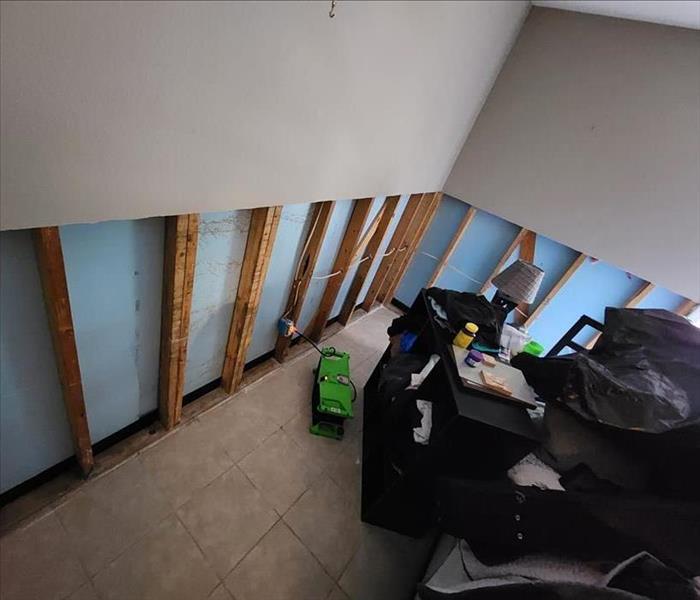Water Damage Prevention: Avoid These Common Homeowner Mistakes
6/20/2024 (Permalink)
 By avoiding these common mistakes and being proactive, you can protect your property from water damage disasters.
By avoiding these common mistakes and being proactive, you can protect your property from water damage disasters.
Water damage is a common and often expensive issue for homeowners, but many instances of water damage can be prevented with the right knowledge and precautions. Unfortunately, there are several common mistakes that homeowners make that can lead to water damage in their homes. By understanding these mistakes and taking proactive measures to address them, you can protect your home from potential water damage disasters. Here are some of the most common mistakes to avoid:
Neglecting Regular Maintenance
One of the most common mistakes homeowners make is neglecting regular maintenance tasks that can help prevent water damage. This includes failing to clean gutters and downspouts regularly, which can lead to clogs and water overflow during heavy rainfall. It also includes neglecting to inspect and maintain your plumbing system, such as checking for leaks, loose connections, or corrosion in pipes.
Ignoring Warning Signs
Ignoring warning signs of potential water damage can lead to larger issues down the road. Signs such as water stains on walls or ceilings, musty odors, peeling paint or wallpaper, or warped flooring should not be ignored. These could indicate hidden leaks, plumbing problems, or other issues that need to be addressed promptly to prevent further damage.
Improper Installation
Another common mistake is improper installation of appliances, fixtures, or plumbing systems. Poorly installed appliances like dishwashers, washing machines, or water heaters can leak or malfunction, leading to water damage over time. Similarly, improperly installed plumbing fixtures or connections can result in leaks or bursts that cause significant water damage to your home.
DIY Plumbing Repairs
Attempting DIY plumbing repairs without the necessary knowledge or experience can also lead to water damage. While it may be tempting to try to fix a leak or plumbing issue yourself to save money, improper repairs can worsen the problem and cause more extensive damage. It's best to leave plumbing repairs to qualified professionals who have the expertise and tools to do the job correctly.
Not Having Adequate Insurance Coverage
Finally, not having adequate insurance coverage can leave homeowners financially vulnerable in the event of water damage. It's essential to review your homeowner's insurance policy regularly and ensure that you have coverage for water damage caused by common sources such as burst pipes, plumbing leaks, or weather-related events. Consider adding optional coverage for specific types of water damage, such as sewer backup or flood insurance, depending on your location and risk factors.
By avoiding these common mistakes and taking proactive steps to prevent water damage in your home, you can protect your property and avoid the costly and stressful consequences of water damage disasters. Regular maintenance, prompt repairs, and proper insurance coverage are essential components of a comprehensive water damage prevention strategy. Remember that prevention is key when it comes to protecting your home from water damage, so take action today to protect your property for the future.



 24/7 Emergency Service
24/7 Emergency Service